Contents
Show
Book LOLER Thorough Examination
Need your lifting equipment examined in line with LOLER98 regulations? Get a quote today to ensure you remain compliant.

Need your lifting equipment examined in line with LOLER98 regulations? Get a quote today to ensure you remain compliant.
Stay compliant. Stay safe. Book your examination today with SEIS – your trusted independent inspection & testing company in Nottingham.
Thorough examinations in line with LOLER98 are legally required, periodic examinations, for all lifting equipment. The aim of these examinations is to ensure equipment and workplace safety, and overall compliance in line with UK regulations. In turn protecting your workforce from potential hazards, and you from non compliance.
Book LOLER Inspection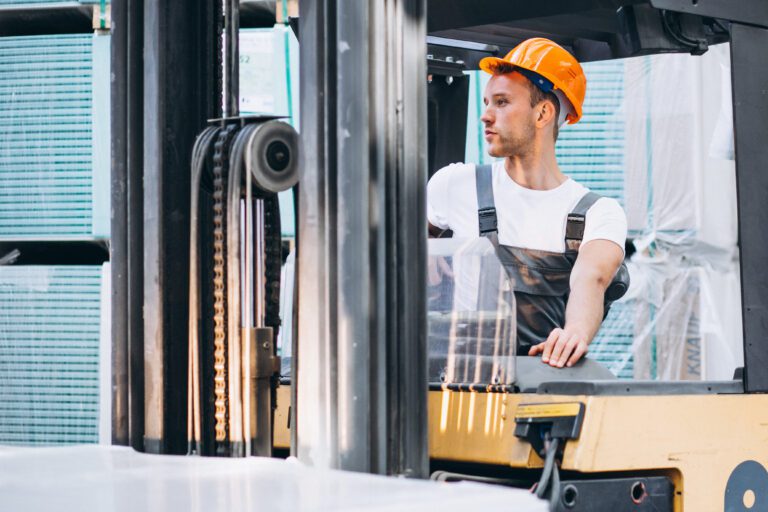
Manufacturing and heavy industry in Nottingham have deep historical roots, evolving from traditional trades into modern, high-tech sectors that continue to play a significant role in the local economy. During the Industrial Revolution, Nottingham became internationally recognised for its textile and lace-making industry, particularly in lace curtain manufacturing. This industrial boom led to rapid urbanisation and economic growth, laying the foundations for a broader manufacturing base. While the lace industry has largely declined, it left behind a legacy of engineering skills, infrastructure, and industrial innovation that still influences Nottingham’s economy today.
In modern times, advanced manufacturing has taken the place of traditional heavy industries. Nottingham and the wider Nottinghamshire area are home to a number of engineering and manufacturing firms involved in producing high-value goods, such as precision components, machinery, electronics, and medical devices. These industries serve a range of sectors including aerospace, automotive, rail, and defence. Companies such as Siemens, which has operations nearby, and smaller high-tech engineering firms, contribute to the city’s reputation for precision manufacturing and innovation.
One of Nottingham’s major historical contributions to manufacturing was through Boots, the health and beauty company founded in the city in the 19th century. While now part of Walgreens Boots Alliance, its Beeston site still plays a critical role in pharmaceutical manufacturing and research. The site includes laboratories, packaging lines, and large-scale production facilities, making it one of the city’s most significant manufacturing operations in terms of scale and employment.
Food and beverage manufacturing is also an important part of Nottingham’s industrial landscape. The region hosts facilities for major food producers and packagers, supporting both domestic consumption and export. These operations benefit from Nottingham’s central location and strong transport links, making it an ideal logistics and distribution hub for manufacturing businesses.
The city’s industrial estates and business parks—such as Blenheim Industrial Estate, Colwick Industrial Estate, and Nottingham Science Park—house a mix of traditional manufacturers and modern engineering firms. These areas provide space for both SMEs and larger companies involved in fabrication, electronics assembly, metalworking, and plastics.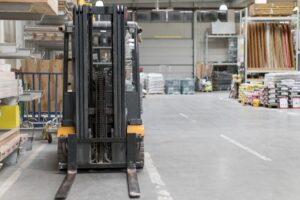
In addition, Nottingham is part of the Midlands Engine initiative, which aims to boost economic growth and productivity in the region, particularly through investment in manufacturing and infrastructure. The local government and universities work closely with industry to develop skills, adopt new technologies, and encourage innovation in manufacturing processes, including automation, robotics, and sustainable production methods.
In summary, while Nottingham may not be a heavy industry powerhouse in the traditional sense today, its manufacturing sector remains strong and forward-looking, with an emphasis on advanced engineering, pharmaceuticals, precision manufacturing, and food production. The city successfully blends its industrial heritage with modern innovation, making it a competitive and diverse manufacturing hub in the Midlands.
Nottingham is surrounded by a wide range of towns and villages whose development was closely linked to industry, trade, and transport. Places such as Beeston, Hucknall, and Long Eaton grew rapidly during the 19th century as centres of manufacturing, particularly textiles, lace making, and engineering. Their close proximity to Nottingham allowed them to benefit from the city’s markets, workforce, and transport connections.
Other nearby towns and villages, including Arnold, Carlton, West Bridgford, and Bulwell, developed as a mix of industrial and residential areas. Coal mining played an important role to the north of the city, especially around Hucknall and Bulwell, while brickmaking and small-scale engineering were also common. The River Trent and the network of canals and railways helped move raw materials and finished goods across the region.
In the late 20th century, many traditional industries declined, leading to significant changes across the area. Former factories and pit sites have been redeveloped for housing, retail, and business use. Today, the surrounding towns and villages support a more diverse economy, including technology, logistics, education, and services, while still reflecting Nottingham’s strong industrial heritage.
LOLER regulations place strict duties on business owners and equipment operators. Any business in Nottingham that owns or operates lifting equipment must ensure that:
Lifting equipment is safe to use.
Examinations are carried out at regular, legally required intervals.
Inspections are conducted by a competent and impartial person.
Failure to comply can lead to heavy fines, prosecution, and serious safety risks.
At SEIS, we know that every business in Nottingham – whether in heavy industry, agriculture, healthcare, education, or automotive—depends on reliable, safe equipment. Regular LOLER inspections & LOLER testing reduces the risk of accidents, protect your workforce, and ensure smooth day-to-day operations. Compliance not only keeps you legal, but also demonstrates a strong commitment to employee safety.
Book LOLER InspectionA thorough examination under LOLER is a detailed and legally required inspection of lifting equipment. Unlike simple checks or maintenance tasks, a LOLER examination must be performed by an impartial, competent person and results in an official Report of Thorough Examination.
How often your lifting equipment in Nottingham needs to be inspected & tested depends on its type and use:
Every 6 months – For lifting equipment used to lift persons (e.g., passenger lifts, wheelchair lifts, patient hoists), or lifting accessories and attachments.
Every 12 months – For other lifting equipment (e.g., cranes, forklifts, goods lifts).
After significant changes or repairs – Equipment must be inspected immediately if it has been modified, damaged, or relocated.
LOLER requires inspections to be carried out by a competent and independent person—not by the equipment supplier or operator. At SEIS, we meet these exact criteria. Our inspections are impartial, unbiased, and always in line with UK regulations.
Book LOLER InspectionBusinesses in Nottingham use a vast range of lifting equipment, and at SEIS we provide LOLER inspections across them all.
Passenger lifts
Goods lifts
Vehicle lifts
Wheelchair and platform lifts
Overhead travelling cranes
Mobile cranes
Forklift trucks
Lifting tackle and accessories
Slings (chains, ropes, webbing)
Shackles and hooks
Lifting beams and frames
Chain blocks and lever hoists
No matter the type of equipment on your site, SEIS ensures every examination is completed thoroughly, with full reports for your compliance records.
Book LOLER Inspection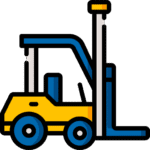
A thorough examination on a fork lift truck or reach truck ensures all safety critical components are identified in line with SAFed guidance MLCC 07, and the plant is examined in line with SAFed guidance LG 4. This includes a full structural integrity assessment, referencing specific guidances such as BS ISO 5057:2022 for fork arm inspections, and testing of any safety systems present.
Fork Lift - Learn More Reach Truck - Learn More
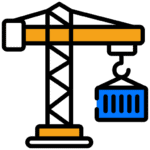
A thorough examination on a crane (all variants) ensures all safety critical components are identified in line with SAFed guidance MLCC 07, and the plant is thoroughly examined. This includes a full structural integrity assessment, referencing specific guidances such as BS ISO 4309:2017 for rejection criteria of the steel wire hoisting rope, and testing of any safety systems present.
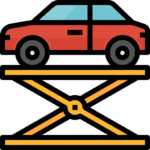
A thorough examination on a motor vehicle lifting table (all variants) ensures all safety critical components are identified in line with SAFed guidance MLCC 07, and consideration is given to SAFed guidance MLCC 13 whilst the plant is thoroughly examined. This includes a full structural integrity assessment, referencing specific guidances such as BS ISO 4309:2017 for rejection criteria of the steel wire hoisting rope, any manufacturers guidance for inspection of load nuts and safety nuts, and testing of any safety systems present
Vehicle Lift - Learn More Vehicle Jack - Learn More

A thorough examination on chain hoists, lifting tackle and lifting attachments (all variants) ensures all safety critical components are identified in line with SAFed guidance MLCC 07, and the plant is thoroughly examined. This includes a full structural integrity assessment, referencing specific guidances such as BS ISO 4309:2017 for rejection criteria of the steel wire hoisting rope, PM28 for non-integrated work platforms, and testing of any safety systems present.
Lifting Tackle- Learn More Lifting Attachment - Learn More
Chain Hoist - Learn More

A thorough examination on Passnger/Goods lift (all variants) ensures all safety critical components are identified in line with SAFed guidance MLCC 07, and consideration to SAFed guidance LG 01 is applied whilst the plant is thoroughly examined. This includes a full structural integrity assessment, referencing specific guidances such as SAFed LG01 for rejection criteria of the suspension ropes, any further manufacturers specific guidance for inspection and rejection criteria of suspension ropes, and testing of any safety systems present.

A thorough examination on Platform lifts (all variants) ensures all safety critical components are identified in line with SAFed guidance MLCC 07, and consideration to SAFed guidance LG 01 is applied whilst the plant is thoroughly examined. This includes a full structural integrity assessment, referencing specific guidances such as SAFed LG01 for rejection criteria of the suspension ropes, any further manufacturers specific guidance for inspection and rejection criteria of suspension ropes, manufacturers criteria on load nut rejection, and testing of any safety systems present.

A thorough examination on a vacuum lifting machine (all variants) ensures all safety critical components are identified in line with SAFed guidance MLCC 07. This includes a full structural integrity assessment, referencing specific manufacturers guidances, and testing of any safety systems present.

A thorough examination on a Mobile Elevating Work Platform (MEWP) ensures all safety critical components are identified in line with SAFed guidance MLCC 07. This includes a full structural integrity assessment, referencing specific manufacturers guidances, and testing of any safety systems present.
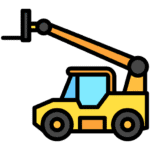
A thorough examination on a fork lift truck ensures all safety critical components are identified in line with SAFed guidance MLCC 07. This includes a full structural integrity assessment, referencing specific guidances such as BS ISO 5057:2022 for fork arm inspections, and testing of any safety systems present.
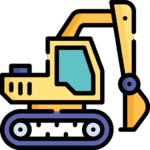
A thorough examination on a fork lift truck ensures all safety critical components are identified in line with SAFed guidance MLCC 07. This includes a full structural integrity assessment, referencing specific manufacturers guidances, and testing of any safety systems present.
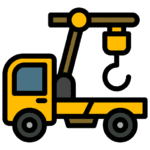
A thorough examination on a lorry mounted crane/ HIAB (all variants) ensures all safety critical components are identified in line with SAFed guidance MLCC 07, and consideration is given to BS 7121-2-4:2013 whilst the plant is thoroughly examined. This includes a full structural integrity assessment, referencing specific guidances such as BS ISO 4309:2017 for rejection criteria of the steel wire hoisting rope, and testing of any safety systems present (RCI & RCC).

A thorough examination on a personnel hoist, stair lift/ wheel chair stair lift and personnel sling (all variants) ensures all safety critical components are identified in line with SAFed guidance MLCC 07, and the plant is thoroughly examined.This includes a full structural integrity assessment, referencing specific manufacturers guidances, and testing of any safety systems present.
Patient Hoist - Learn More Stair Lift- Learn More

A thorough examination on a fork lift truck or reach truck ensures all safety critical components are identified in line with SAFed guidance MLCC 07, and the plant is examined in line with SAFed guidance LG 4. This includes a full structural integrity assessment, referencing specific guidances such as BS ISO 5057:2022 for fork arm inspections, and testing of any safety systems present.

A thorough examination on a fork lift truck or reach truck ensures all safety critical components are identified in line with SAFed guidance MLCC 07. This includes a full structural integrity assessment, referencing specific manufacturers guidances regarding load testing, referencing of MLCC01 for load chain elongation (if fitted) and testing of any safety systems present.

SEIS is proud to support Nottingham businesses with impartial, expert inspections. We understand the local industries, from agriculture to food production, and we tailor our service to meet your needs.
As an independent inspection provider, we do not sell or repair lifting equipment. This means you can trust our assessments to be impartial, unbiased, and fully in line with LOLER regulations.
Our team of qualified surveyors have years of hands-on experience across multiple industries. They know exactly what to look for and how to ensure your business remains compliant without unnecessary disruption.
We understand that downtime costs money. That’s why we work around your production schedule, conducting inspections efficiently and professionally so your operations continue smoothly.
Book LOLER InspectionWe make LOLER inspections & testing straightforward and hassle-free for local businesses.
Simply get in touch with our team, and we’ll arrange a time that works for you.
Our engineer surveyors visit your site and carry out thorough examinations with minimal disruption.
After each inspection, you’ll receive a clear, detailed report highlighting any defects and recommended actions.
We’ll manage your inspection schedule, reminding you before your next due date. Plus, you’ll have access to our online reporting portal, so your certificates are always at your fingertips.
Book LOLER InspectionChoosing the right inspection provider makes all the difference. Here’s why Nottingham businesses trust SEIS:
From the agriculture, food manufacturing to schools, and garages, we understand the unique challenges businesses here face.
We provide inspections for:
Heavy industry
Education
Healthcare
Automotive
We pride ourselves on safety, compliance, and customer service—always putting your needs first.
Nottingham is a city in the East Midlands of England and the county city of Nottinghamshire.
The city is famously associated with the legend of Robin Hood and nearby Sherwood Forest.
Nottingham grew into an important industrial centre during the Industrial Revolution.
It was particularly well known for lace making, textiles, and hosiery manufacturing.
The River Trent flows to the south of the city and was vital for trade and transport.
Nottingham Castle stands on a sandstone cliff overlooking the city.
The city has a large network of man-made caves carved into the sandstone beneath it.
Nottingham is home to two major universities: the University of Nottingham and Nottingham Trent University.
It has strong transport links, including rail connections and a modern tram system.
Today, Nottingham has a diverse economy including education, healthcare, technology, retail, and creative industries.
Booking with SEIS is quick and easy:
✅ Call our friendly team
✅ Fill in our online booking form
✅ Get your inspection arranged around your schedule
We’ll handle the rest, ensuring your equipment is inspected thoroughly, your compliance is up to date, and your workforce is kept safe.
A LOLER inspection, or thorough examination, is a legally required check of lifting equipment to ensure it is safe, compliant, and fit for use.
Inspections are required:
Only a competent and impartial person can perform LOLER inspections. At SEIS, our independent surveyors meet these requirements.
LOLER applies to:
and all lifting accessories used at work.
Yes. Whether you run a large factory or a small garage, any business operating lifting equipment must comply with LOLER.
Non-compliance can lead to fines, legal penalties, equipment downtime, and serious safety risks for staff.
No. SEIS works around your schedule to complete inspections efficiently, minimising downtime and disruption.
You’ll get a digital Report of Thorough Examination by email and access via our secure online portal.
Yes. We manage your compliance schedule and send reminders before your equipment is due for inspection.
Yes. Alongside Nottingham, we also serve clients across the county and nationally, across the whole of the UK.